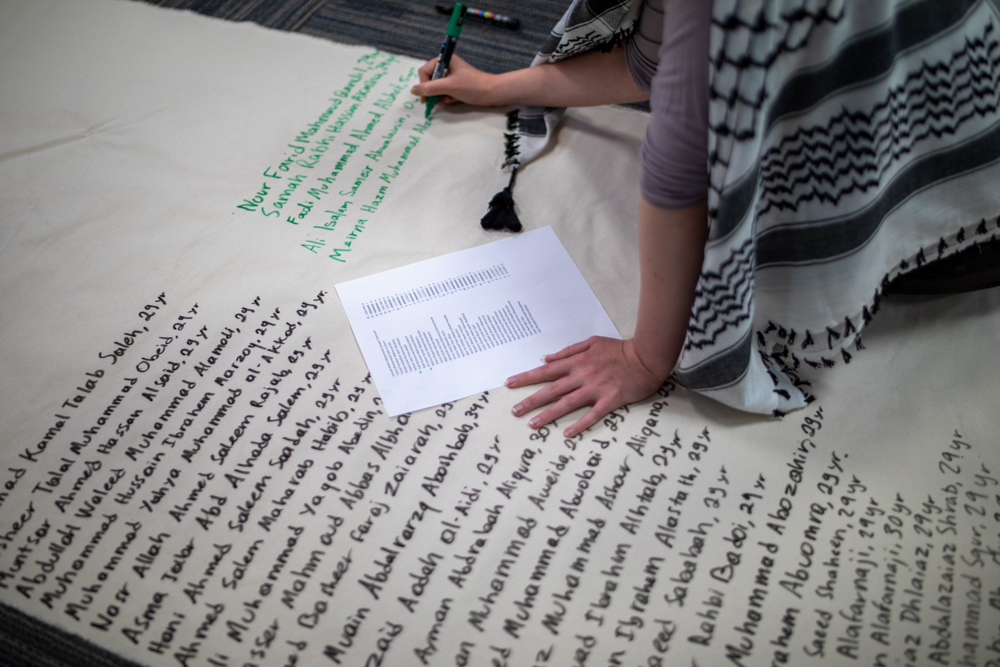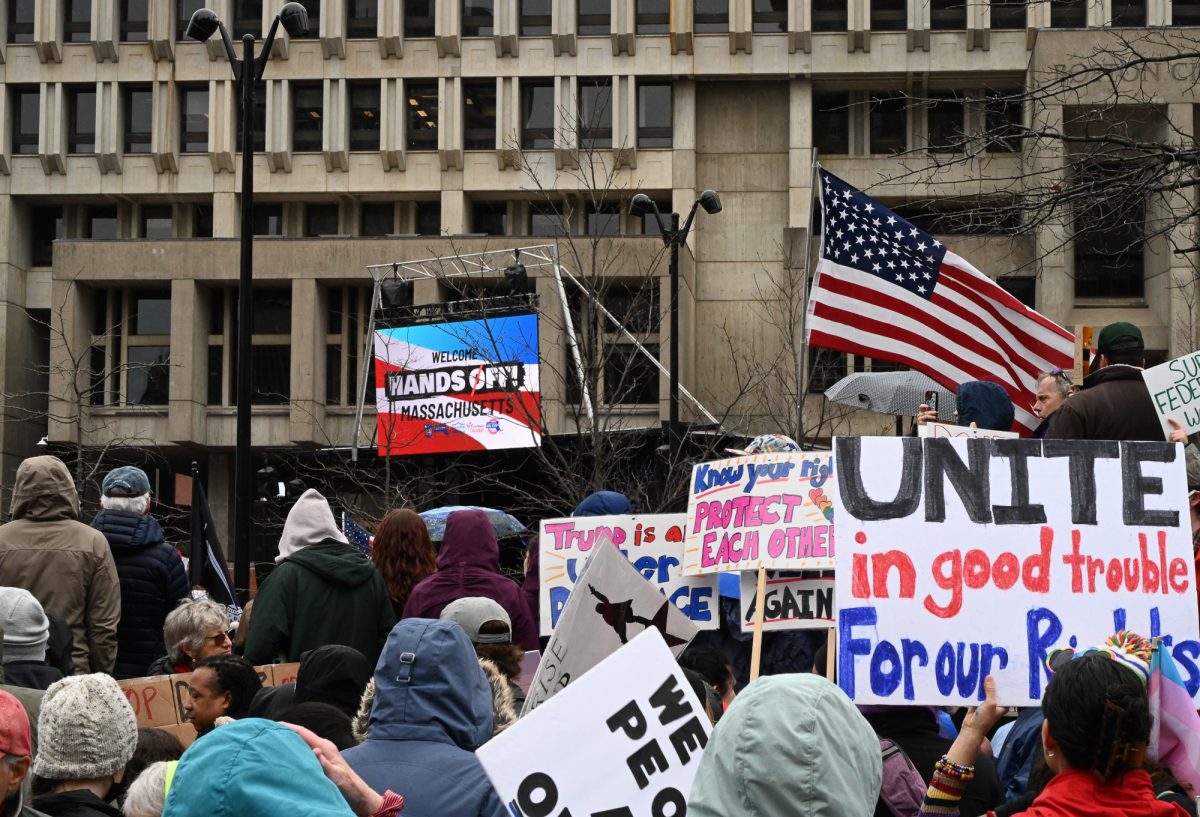The number of civil complaints and lawsuits filed against college administrations in Boston have spiked this year, raising concerns surrounding the jeopardization of free speech on campuses.

Student groups in support of both Israel and Palestine at schools across the Boston area claimed to be targets of suppression and prejudice. This past year, Harvard University, Northeastern University, Massachusetts Institute of Technology and University of Massachusetts Amherst have all faced legal action by students who allege their administrations have been discriminatory toward them.
Last spring, police arrested about 100 people at Northeastern at a pro-Palestinian encampment on Centennial Common, according to CBS News.
These arrests have been listed in a civil complaint against the university that claims the administration has participated in “anti-Arab, anti-Muslim, and anti-Palestinian” discrimination, according to an Instagram post by Huskies for a Free Palestine.
“Students and student organizations have been approaching the university constantly with our concerns,” said Mariam Hassan, one of the students who filed the complaint. “We have made our concerns very clear, and we’re not really being heard.”
Hassan, alongside 13 other Northeastern students, filed the complaint on Aug. 12 with the United States Department of Education’s Office for Civil Rights. The OCR is deliberating whether or not it will go forward with the investigation, a decision that could take weeks or even months to be finalized, Hassan said.
Mary Beth Tinker, a plaintiff in the 1969 Supreme Court case Tinker v. Des Moines, which set a new precedent for the protection of free speech on college campuses in the United States, said she “admires” the Northeastern students for filing the complaint. She added that the past year has shown a “huge effort right now to suppress student voices.”
“I have also been censored when it comes to the Palestine issue,” Tinker said. “Those days are behind me now, and I will never be quiet about the atrocities that are being heaped onto the Palestinian people.”
The civil complaint alleges that Northeastern has “actively censored pro-Palestine students, events, and actions” by “over-policing” them and “enforcing arbitrary University policies.”
“The censorship started even before October 7,” Hassan said. “For years, there’s been a lot of issues with the university and just feeling like different policies are enforced on pro-Palestinian clubs versus other clubs.”
Sabrina Chevlin, a fifth-year student at Northeastern and former vice president of Huskies for Israel, said rallies and protests promoted by Huskies for a Free Palestine “disrupt” campus activities, which “understandably evokes a lot of frustration for the university administration.”
Huskies for a Free Palestine is one of the pro-Palestine student groups operating at Northeastern, but it is not a registered student organization.
Student demonstrations that “disrupt university business or operations” are not permitted, according to Northeastern’s policy on demonstrations. People unaffiliated with Northeastern who participate in demonstrations “may be considered trespassers.”
“When your events are continuously being asked to be canceled or the police are constantly trying to escort you out of a location, sure, it can come off as discriminatory,” Chevlin said. “But when you look at the context, if you’re not following the rules, you’re going to suffer the consequences.”
At Harvard, six Jewish students filed a federal lawsuit against the university on Jan. 10 claiming the administration has neglected to combat “severe” antisemitism on campus. A U.S. district judge denied Harvard’s motion to dismiss the lawsuit in August.
“It’s a damning indictment on the state of higher education in the United States, and in particular Harvard University, that in order for students to receive equity, equality and justice, we have to resort to a court of law,” said Shabbos Kestenbaum, a 2024 Harvard Divinity School graduate and the only named plaintiff in the case.
Kestenbaum said he feels his right to free speech was not protected on campus. He said pro-Palestine student groups were able to engage in political activity in spaces that pro-Israel students were discouraged from protesting in.
“There is a double standard when it comes to how they treat all students and how they treat Jewish students,” Kestenbaum said.
Harvard has also recently received criticism for enforcing a host of new policies surrounding protests, including restrictions against “chalking, posting flyers without authorization, camping, and, in some cases, any expressive activity during certain hours of the day,” according to the Boston Globe.
In a statement released on Aug. 30, Harvard’s Executive Vice President Meredith Weenick wrote that the university embraces the “right to freedom of thought, open inquiry, and free expression,” but this “right is not limitless.”
“It may not be exercised in a manner that obstructs the ability of other members of the Harvard community to engage in the activities that sustain our mission,” Weenick wrote.
Tinker said while the government cannot “censor” citizens, private institutions are a “different ballgame.” She said universities should create environments for students to talk about the war in Gaza.
“Administrations should encourage student voices and set up ways that students can dialogue respectfully with each other,” Tinker said. “Create forums where people can talk and learn respectfully and where people can learn the true story of Palestine and Israel.”



















































































































